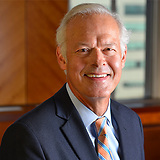Employees don’t shed their viewpoints at the front door of the workplace. You knew that already! Many come to work with a variety of political, cultural, religious, economic and demographic viewpoints. Along with this increasing pluralism, America’s workforce is part of a nation that values and debates free speech.
As the national debate continues over how, when and where to draw the line between speech that is protected or not under the First Amendment, it’s easy to lose sight of a basic distinction between governmental (aka “state”) action and private action. The distinction is important because the First Amendment applies to state action, not purely private action.
Companies like Facebook are, constitutionally speaking, deemed private actors, not public actors. To our Constitution’s founders, it was the government they feared would tread on the free speech rights of We The People. Today’s speech shapers include mega-corporations like Facebook along with powerful tech algorithms.
This state-vs.-private action distinction can get fuzzy when companies selectively pick and choose when they want free speech and when they don’t. On the one hand, Facebook has lately been wrapping itself in the First Amendment to justify its decisions about what’s acceptable or not on Facebook. On the other hand, Facebook is a private actor not covered by the First Amendment in its employment policies and practices about its own employees’ speech rights.
The confusion over state-vs.-private action coincides with an American workforce that is increasingly pluralistic. Employees may have expectations around free speech rights at work. Yet full First Amendment-style speech rights may not exist in private employment policies and practices. For example, an employee may have heard (correctly) that the First Amendment protects hate speech. That doesn’t mean, however, that a private employer must allow hate speech at work. The private employer can set its standards about where to draw the line on free speech. It may wisely draw the line to promote civility in its workplace. The First Amendment is designed to protect free speech, even obnoxious speech, not civility. Of course, even a private employer must follow laws against discriminatory speech.
Context matters a lot when it comes to free speech: what is acceptable in one context may not be so in another. Beyond the baseline of legal compliance, there is room for the private employer to promote workplace civility while also balancing how much latitude to give free speech at work. Thoughtful employers will consider: the nature of their business; the workplace culture they wish to encourage; the talent they wish to recruit and retain; and the value of encouraging the free flow of new ideas while upholding civility at work.

